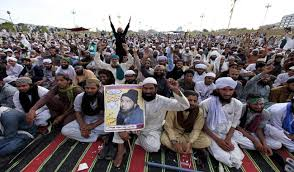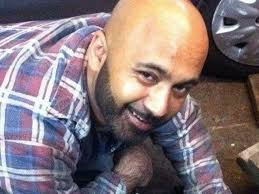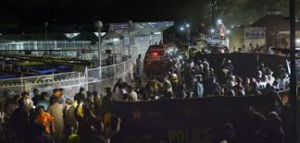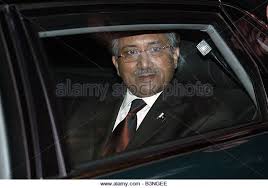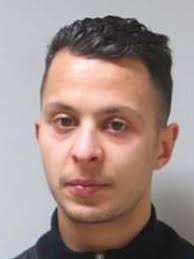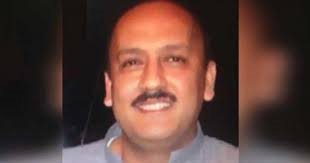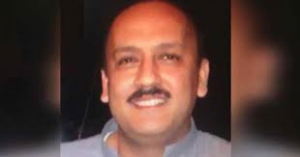A number of important Pakistanis have been indicted in the International Consortium of Investigative Journalists (ICIJ) investigation into offshore companies.
In total the journalists received 11.5 million documents in a leak from Panama-based law firm Mossack & Fonseca. A huge number of Pakistanis feature on those lists, and we bring you a round up of the most prominent names.
So far 220 Pakistanis are featured in the list, although the ICIJ says that it will be revealing more files in May.
Pakistani Politicians in Panama Leaks:
Prime Minister Nawaz Sharif is linked to 9 companies connected to his family name. Those involved are:
- Hassan Nawaz
- Hussain Nawaz
- Maryam Nawaz
Relatives of Punjab Chief Minister and brother of Prime Minister Shahbaz Sharif are linked to 7 companies. They are:
- Samina Durrani
- Ilyas Mehraj
Now deceased former prime minister Benazir Bhutto was linked to one company. However relatives and associates are linked to others:
- Nephew Hassan Ali Jaffery
- Javed Pasha, Close friend of Asif Ali Zardari (4 companies)
- PPP Senator Rehman Malik (1 company)
- PPP Senator Osman Saifullah’s family (34 companies)
- Anwar Saifullah
- Salim Saifullah
- Humayun Saifullah
- Iqbal Saifullah
- Javed Saifullah
- Jehangir Saifullah
The Chaudharies of Gujrat have not been linked personally but other relatives have including:
- Waseem Gulzar
- Zain Sukhera (co-accused with former Prime Minister Yusuf Raza Gilani’s son in the Hajj scandal)
Pakistani Businessmen in Panama Leaks:
- Real Estate Czar Malik Riaz Hussain’s son (Bahria Town)
- Ahmad Ali Riaz (1 company)
- Chairman ABM Group of Companies Azam Sultan (5 companies)
- Pizza Hut owner Aqeel Hussain and family (1 company)
- Brother Tanwir Hassan
- Chairman Soorty Enterprise Abdul Rashid Soorty and family
- Sultan Ali Allana, Chairman of Habib Bank Limited (1 company)
- Khawaja Iqbal Hassan, former NIB bank President (1 company)
- Bashir Ahmed and Javed Shakoor of Buxly Paints (1 company)
- Mehmood Ahmed of Berger Paints (1 company)
- Hotel tycoon Sadruddin Hashwani and family (3 companies)
- Murtaza Haswani
- Owner of Hilton Pharma, Shehbaz Yasin Malik and family (1 company)
- The Hussain Dawood family (2 companies)
- Shahzada Dawood
- Abdul Samad Dawood
- Partner Saad Raja
- The Abdullah family of Sapphire Textiles (5 companies)
- Yousuf Abdullah and his wife
- Muhammad Abdullah and his wife
- Shahid Abdullah and his family
- Nadeem Abdullah and family
- Amer Abdullah and family
- Gul Muhammad Tabba of Lucky Textiles
- Shahid Nazir, CEO of Masood Textile Mills (1 company)
- Partner Naziya Nazir
- Zulfiqar Ali Lakhani, from Lakson Group and owner of Colgate-Palmolive, Tetley Clover and Clover Pakistan (1 company)
- Zulfiqar Paracha and family of Universal Corporation (1 company)
Pakistani Judges in Panama Leaks:
- Serving Lahore High Court Judge Justice Farrukh Irfan
- Retired Judge Malik Qayyum
Pakistani Media personnel in Panama Leaks:
- Mir Shakil-ur-Rehman of GEO and Jang Group (1 company)
NAB could investigate Pakistanis listed in Panama Papers
According to reports the the National Accountability Bureau (NAB) of Pakistan has started an inquiry into the involvement of Pakistanis in the ownership of offshore companies. A full investigation may still happen after a discussion between top NAB officials.
While owning an offshore company isn’t illegal in itself, the practice is commonly linked to tax evasion and fraud. The law firm involved in the leak has clients from around the world, including people linked to Russian President Vladimir Putin, Argentinian President Mauricio Macri and football star Lionel Messi.
The documents reveal how world figures use a series of shell companies to obscure the trail of their money and avoid paying national taxes. The techniques are also linked to money laundering for drug smugglers and other criminal groups.
Effects already being felt
The fallout from the scandal has the potential to reverberate around the world. The prime minister of Iceland was forced to resign after it was revealed that he had not disclosed the fact that he and his wife owned an offshore company.
In India a huge number of celebrities, businessmen and politicians have also been caught up in the scandal. It is thought that many public figures have used the shell companies in order to avoid paying taxes.
Nations around the world lose billions of dollars in tax revenue due to the existence of tax havens such as Panama. There have been growing calls to clampdown on the practice and a video of U.S. Democratic presidential hopeful Bernie Sanders has surfaced in which he criticizes the signing of a free trade agreement with Panama.
He says that the agreement facilitates this kind of behavior, which costs the taxpayer millions. In a country like Pakistan where so much money needs to be invested in infrastructure and other programs in order to alleviate poverty, it is a scandal that so many people are effectively stealing money from their countrymen.
While it should come as no surprise that rich people try to hold on to their money, the leaks provide hope that the flagrant tax dodging could come to an end.

